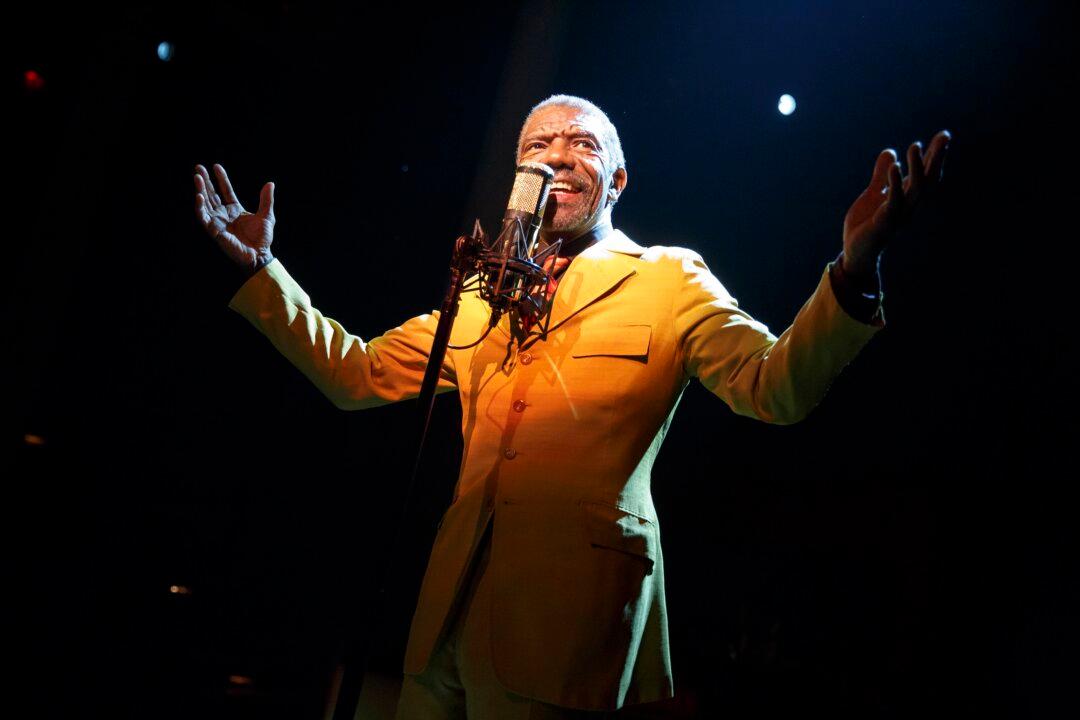NEW YORK—Containing elements of racism, religion, political turmoil, and more than a little ironic satire, the musical drama “The Total Bent” explodes off the stage at The Public Theater. The work offers a journey both thrilling and insightful, despite its sometimes flawed storytelling.
With a text by Stew and music by Stew and Heidi Rodewald, the play is set in Montgomery, Alabama, at the dawn of the civil rights movement.

(L–R) Marty (Ato Blankson-Wood) and Byron Blackwell (David Cale) in a scene from "The Total Bent." Joan Marcus





